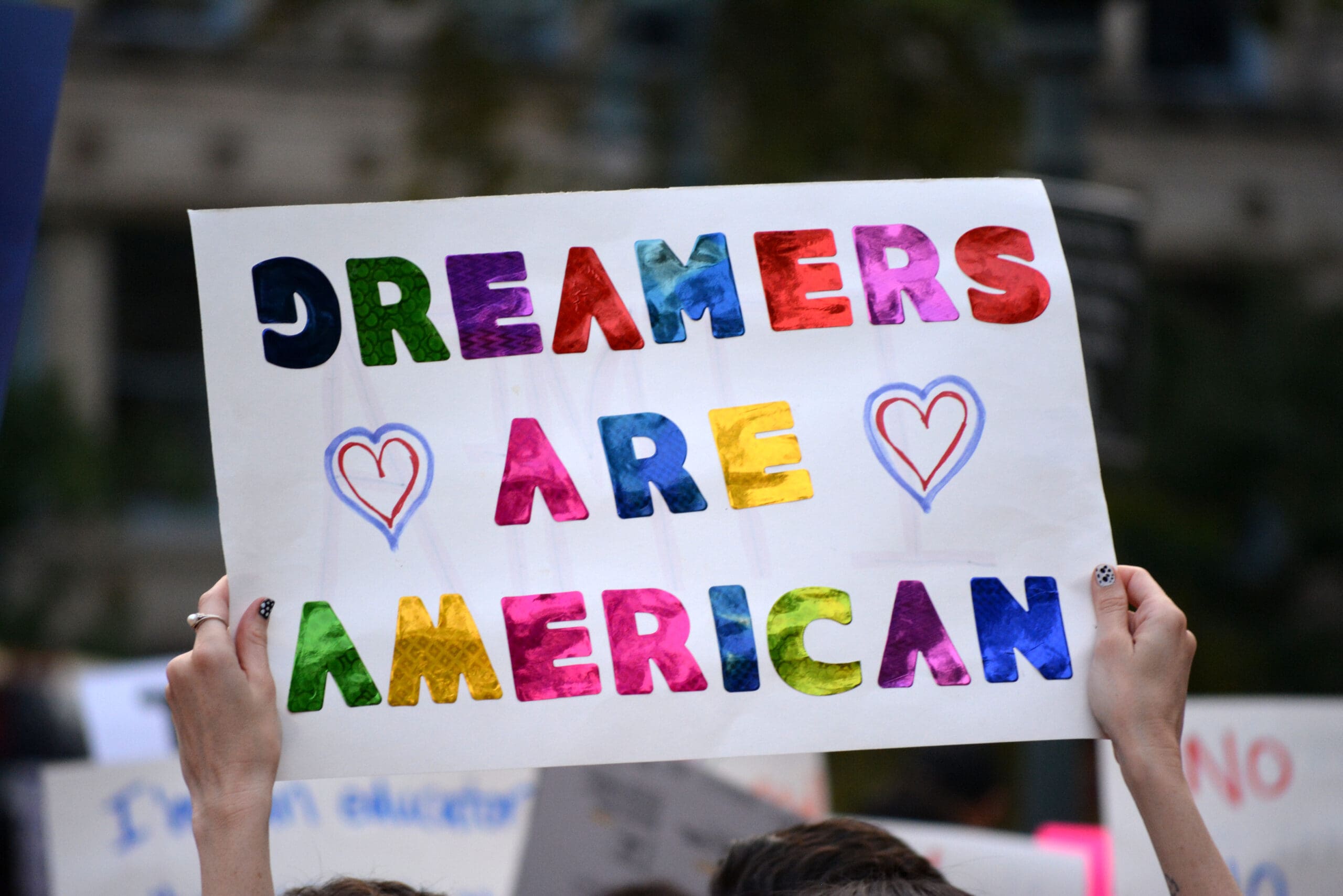
The Trump Administration’s “public charge rule” has been vacated by the US District Court for the Northern District of Illinois. According to the court, “The rule’s interpretation of public charge is arbitrary and capricious and incompatible with the Immigration and Nationality Act.”
Under the rule, the Department of Homeland Security had the power to deny green cards to immigrants who had used programs like Medicaid and SNAP. The rule also forced new entrants to prove they would not be “likely to be a public charge” in the future before being granted admission into the country.
The rule radically expanded the list of programs that could come under consideration when “determining whether an immigrant is likely to become a public charge.”
Some level of public charge grounds for inadmissibility have been part of the law for over 100 years.
Yet prior to Trump’s rule, simply receiving public benefits at some point was not an automatic grounds for denial, as having received some benefits in the past did not necessarily mean receiving benefits in the future.
Asylum and refugee seekers remained exempt from this program even under Trump’s rule, as did T and U visa holders, and VAWA visa holders.
The definition, via the USCIS, was “an alien who receives one or more public benefits for more than 12 months within any 36 month period.” USCIS also looks at health, family status, age, assets, resources, education, skills, prospective immigration status, expected period of admission, and affidavits of support when determining whether an immigrant is likely to become reliant on the government.
Emergency medical assistance, disaster relief, national school lunch programs, WIC, CHIP, subsidies for foster care and adoption, student and mortgage loans, energy assistance, food pantries, homeless shelters, and head starts were never considered under the rule.
The fact that the rule has been vacated simply shrinks the available list of programs down to their original list. It does not mean that public charge will not be considered at all when considering whether or not an immigrant may be eligible for a green card.
If you have been avoiding health care because you are afraid of running afoul of the public charge rule then you should rest assured that you’re safe if you decide to seek care, especially for Covid-19. Emergency care was always exempt.
See also:
Covid-19 Continues to Impact Immigration
New Denaturalization Task Force
What Are the Grounds for Cancellation of Removal?

Premium processing has always been available for certain temporary visas, mostly employment-based visas. For an additional fee, USCIS would guarantee processing within 15 days of receiving the application.
Now premium processing is available for applications to change or extend a nonimmigrant status, applications for employment authorization, and “any other benefit the Secretary deems appropriate for premium processing.” One of the new categories is the H4 visa, which covers the spouses of H-1B Visa holders.
The bill that makes this possible is HR 8377.
The extension gives USCIS to try to raise more funds by selling more premium processing.
It may be a good idea to take advantage of it if you can. Without premium process, you might have to wait as long as six months. You aren’t allowed to work in the United States while waiting, which makes waiting untenable for most. Yet you won’t get premium processing in 15 days either. The new law allows USCIS to take as many as 30 days for their premium service.
Note that this is not the bill that would have also allowed an increase in visa fees, blocked by a US Federal Court. There is now a preliminary injunction in place that will keep the federal government from raising fees for the immediate future. The Government is likely to respond by requesting a stay of the injunction, but for now USCIS can’t raise prices.
Note that paying for premium processing does not guarantee visa approval by a long shot. USCIS is only promising that they will have some kind of answer for you in 30 days. Often this will be a Request for Evidence. You would then have 30 more days to respond to that, and then they’d have 30 more days to respond to your response.
It is still faster than waiting 6 months to get the same Request for Evidence.
Want to make your processing times faster still? Work with a qualified immigration attorney before you apply for any visa. The more you get right the first time, the lower your chances of being asked to provide more evidence. If you are asked to provide more evidence you will do so in a stronger position than someone who tried to go it alone.
Reach out to the Law Firm of Kyce Siddiqi today to get started.
See also:
Do Immigrants Have to Pay Taxes?
The Truth About Green Card Marriage
Federal Judge Blocks Trump Administration Rule Requiring Visa Applicants to Prove They Have Health Insurance

If your green card status is based on a marriage or pending marriage then the breakdown of that relationship can absolutely impact your LPR application. Nothing is ever certain where relationships are concerned, of course, so it’s important to know what can happen and what your options are.
The possibilities depend quite a bit on where you are in the process and how long you’ve been in the United States. No matter what, you will need a qualified immigration attorney by your side if you’re going to have any hope of staying in the United States.
Engaged
If something goes wrong during your engagement your spouse can withdraw their I-130 petition at any time. All they have to do is send a notarized letter to USCIS.
Even if they don’t they can simply refuse to show up at your visa interview, which can be the kiss of death for your application.
Worse, if your application falls apart this way it’s unlikely you’ll be able to apply again with a new spouse later on. USCIS will be suspicious of the new marriage. If you and your current spouse make up and they’ve withdrawn the petition their second petition might not be successful either.
If you think there’s any hope for saving the relationship you should do everything in your power to try to reconcile with your spouse before they do anything hasty. Once they send the letter it may be too late for you and your dreams of coming to the United States for good.
Separating
Separation is sticky, because while separation is not the same as divorce it can impact your status. In some states, separation is a form of divorce. In some it’s a form of divorce if it’s formal but not if it’s informal.
In New York, a separation is not a divorce.
However, being estranged or separated from your spouse could create an awkward situation at your interview and could raise a presumption that your marriage is fraudulent.
Divorcing
If you are already an LPR and get a divorce you’ll need to check whether your status is conditional or not. If your status is not conditional you’re usually free to stay in the United States and to get a divorce.
If your status is conditional you’ll have to petition to remove the conditions of residence, and you should meet with a qualified immigration attorney the moment you know your spouse intends to divorce you.
If you’re seeking a divorce because you’re a battered spouse you may be eligible for a VAWA green card. Even so, you’ll still want to speak to an immigration attorney as soon as possible.
See also:
The Truth About Green Card Marriage
What Are the Grounds for Cancellation of Removal?
4 Steps to a Smoother Immigration Process

Last month the Supreme Court refused to end the Dreamer program. We noted in that blog post that Trump could still find ways to challenge DACA. What we didn’t expect was that Trump would just decide that he didn’t have to listen to the Supreme Court at all.
Yet on July 28 Trump and the DHS announced that they would “thoughtfully consider” keeping DACA open while basically shutting it down, refusing to process new applications and restricting renewals to one year.
They say they will be launching a “comprehensive review” of DACA in the meantime.
It looks like Trump may be gearing up to end the program if he wins the election in November.
The Trump administration claims that the DHS’ decision is an “intervening action that makes the [Supreme Court] decision moot.”
Some DACA applicants have already been denied on the grounds that the DHS isn’t accepting new applications. DHS claims those applications are being “held and placed in a bucket while DHS officials decide on next steps for the DACA program.”
US District Court Judge Paul Grimm has expressed serious disapproval for this stance.
The DHS has also put a halt to advanced parole, which means Dreamers can’t leave the country without jeopardizing their status.
Business Insider notes that this places the US firmly in the middle of a constitutional crisis. “When one branch of government refuses to acknowledge the legitimacy of another branch, that is a constitutional crisis.”
What can DACA recipients do?
If you’re currently protected it’s a great time to reach out to an immigration attorney. You’re safest if you can get your status upgraded to something more stable while you’re still protected.
Adjustments of status may be available to those who have a family member who has successfully obtained US citizenship, via the family-based immigration program which still exists. That could be a path to a green card, and the right to live, work, and go to school here.
Marriage-based green cards are also available to DACA recipients, though like any immigrant they’d have to prove that the marriage is genuine and that it’s not being done solely for green card status.
It’s a good idea to reach out to an immigration attorney if you haven’t done so already. That is the best way to protect yourself in the face of all this uncertainty surrounding a program that the President has been pretty clear about wanting to end. If he’s reelected he might do just that.
See also:
Supreme Court Upholds DACA, What’s Next?
What Are Your Rights if an ICE Agent is At the Door?
The Truth About Green Card Marriage

A few weeks ago the Supreme Court ruled that Trump couldn’t end DACA—at least, not in the way he’s been trying to go about it. The administration has been attempting to declare DACA itself a constitutional violation and an overreach on Obama’s part.
Justice John Roberts didn’t address whether DACA itself was constitutional. Instead, he struck down Trump’s attempts to end it on procedural grounds.
“We do not decide whether DACA or its rescission are sound policies. The wisdom of those decisions is none of our concern. Here we address only whether the Administration complied with the procedural requirements in the law that insist on a ‘reasoned explanation for its action.'”
This means that DACA could still be vulnerable to other challenges. While many Dreamers are relieved, they also know they can’t breathe a sigh of relief yet. They still don’t have a clear path to citizenship…just a way to keep putting off deportation.
If you are a Dreamer, what should you be doing right now?
Keep Applying for Renewals
This is the most important thing you can do. No other solution becomes available to you if your renewals lapse.
This is especially important for Dreamers who attained their status prior to reaching the age of 18 and who have kept your renewals going ever since. If this describes you, then you haven’t accumulated a single day of “unlawful presence” in the country.
This fact could be vital if you ever find yourself applying for an adjustment of status.
Seek an Adjustment of Status
Dreamers who have a family member who has successfully obtained US citizenship may be able to apply for family-based immigration, which could mean a green card and the right to remain in the country permanently. A green card also preserves your right to get a job, obtain credit, obtain housing, and to go to school.
If you don’t have a relative then you might be able to apply for an adjustment of status in the future, if you happen to marry a US Citizen, or now, if you already have.
The procedure is complicated and will require aid from a skilled immigration attorney, but it can still be done.
Alert to Changes
Immigration law and policy shifts frequently, especially now with so many issues being challenged in courts across the nation. This can lead both to good news and to bad news.
For example, several class action suit decisions have now made it illegal for banks and lenders to discriminate against DACA recipients and other noncitizens when they apply for credit.
The news can be bad as well, but it’s still important to stay on top of it. Only then can you respond.
If you haven’t done so already, now is the time to start speaking with an immigration attorney. Having an attorney’s help offers you your best chance of successfully navigating any major immigration issue.
Call today to schedule a consultation and to get the help that you need.
See also:
The Truth About Green Card Marriage
What Are the Grounds for Cancellation of Removal?
4 Steps to a Smoother Immigration Process

















